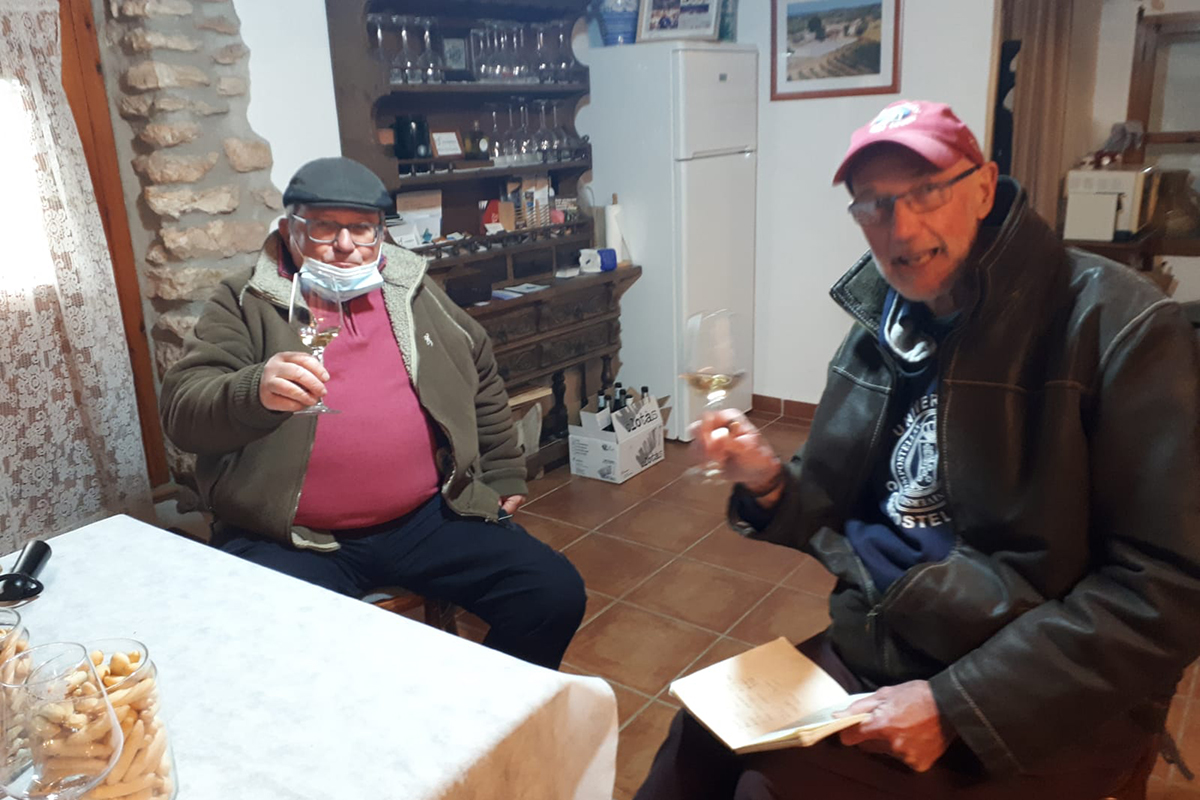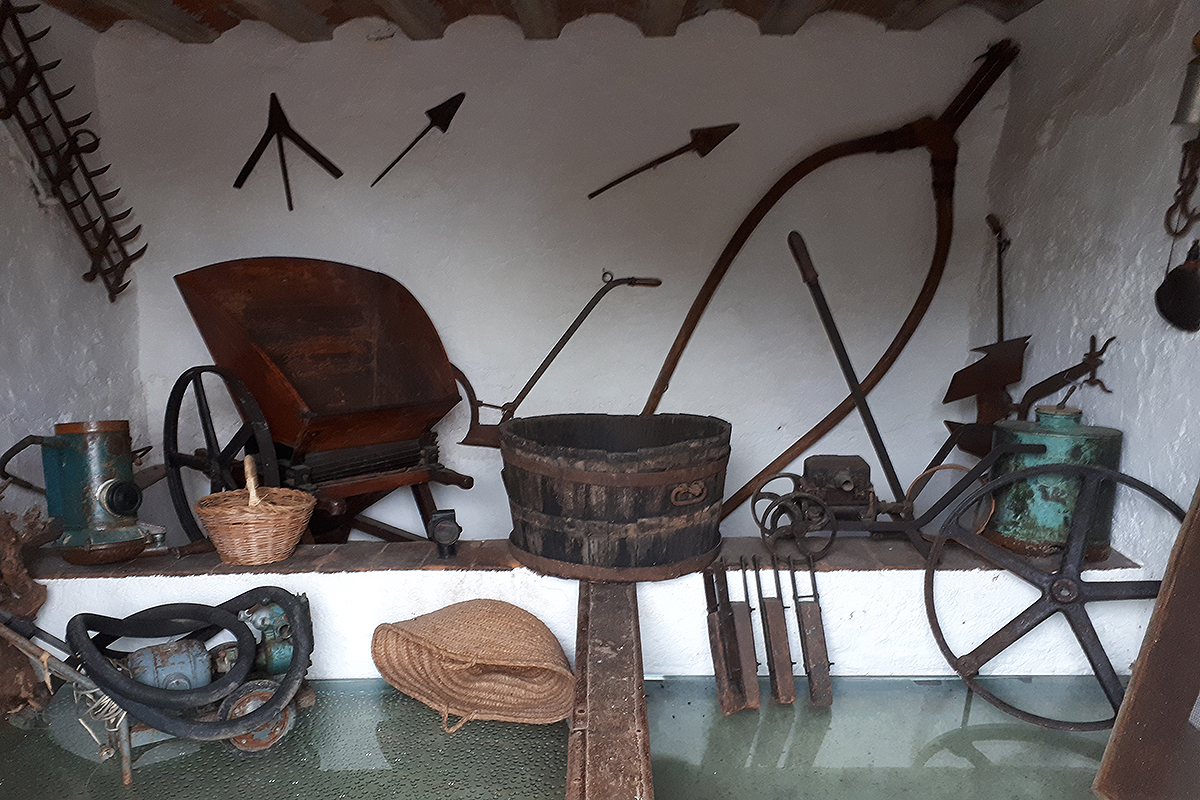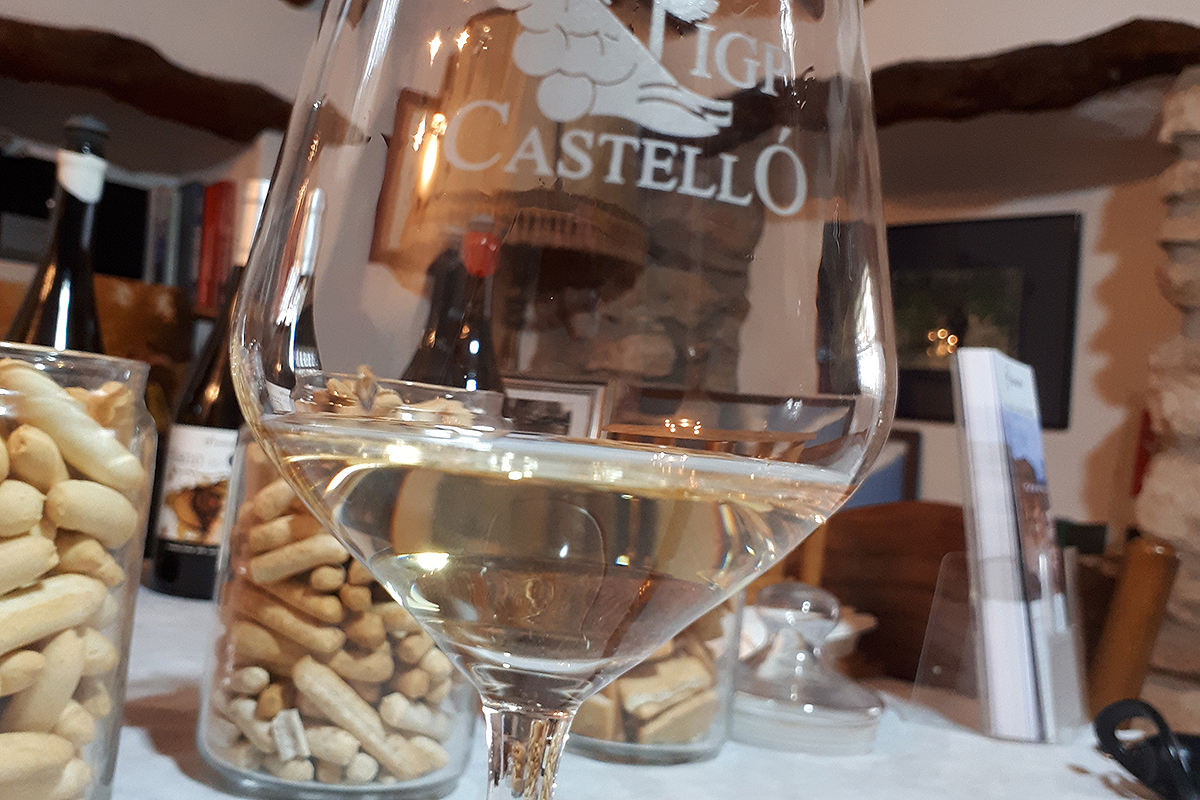21 enero, 2021

Colin Harkness / Twitter: @colinonwine / Instagram: colinharkness53 / Facebook: Colin Harkness
Extra to the overt bonhomie and joviality of the wonderfully friendly and generous Señor Vicente Flors, founder of Bodega Flors, IGP Castelló, there must also be a more covert streak of determination and stubbornness running throughout his DNA!
When told he’d be better getting a proper job, rather than being the 7th generation working in the small family ‘en granel’ (bulk) wine business, in his younger days, Vicente did just that. He worked firstly in the textile industry and then, when he foresaw its inevitable demise in his area, changing to the world of banking. It must have been a relief, though major challenge too, when it was suggested that in fact he might like to return to the family wine business after all.
He did, but with a view to putting his one stamp on it, upping the ante and, although he didn’t know it then, ultimately founding a, still small, excellent bottled, fine wine business, dispensing with the idea of ‘en granel’ completely. I’m so glad he did – and so are consumers in: Valencia, Madrid, London, Tuscany, Belgium, Denmark and Wales!
It wasn’t always thus, however! Vicente openly admits he knew nothing about wine making when taking over the business in the ‘noughties’. Even making bulk wine was a mystery to him – so, he hired a winemaker to teach him the basics. It worked, but it wasn’t enough for this enterprising man, who had to start his wine studies at the grand age of 57 years old, in Requena, training ground for so many good wine makers, as it happens.

He knew it was time to dispense with the oenologist he’d hired when, not for the first time, he’d been metaphorically shot down when asking if it might be possible to jettison the idea of bulk wine in favour of wine with greater definition. Fine wine sold in bottles, quality wine, wine that would make people re-assess the not just Vicente’s wine, but also the wines of the IGP Castelló in general. This was when Vicente’s DNA determination came to the fore.
The two winemakers parted company and, albeit after one or two failed efforts, a wholly new enterprise was born – Bodegas Flors!
I’m not sure if we were the first, but we surely must be two of the few who have arrived in the semi-mountains just outside the nearby small town of Les Useres in a mobile home, parking and staying overnight, as we did in the small car park that is used by wine tourists who visit Bodegas Flors. Nothing phased Vicente though. We were allowed access to the toilets and generously even encouraged to plug into his electricity! Honestly, what could be better for a wine tasting – no drink driving concerns at all, of course, as well as the perfect host and some excellent wines?
As we are on our travels, having left our own area in Spain, heading (slowly, because of Covid restrictions, but also because we are not in a rush) ultimately for Italy and further wine experiences, of course, we found ourselves in Benicássim. I was sure there would be quality wine made in the area, but where and by whom? A simple question on social media gained me two independent recommendations, from wine pros, respectively, Albertina Torres (Insta albertina.torres) and Riki Wigley (Insta rikispics). A quick Instagram message, and an appointment was confirmed.

Señor Flors’ small, bucolic winery still retains some of the original building and artefacts of the preceding generations, though there have been renewals and additions, all in keeping, of course. It’s all quite charming! From the artistically arranged barrica-surrounded terrace outside the small, intimate tasting room, we could see the vineyards, the surrounding area and the snow-clad mountains in the distance.
I could just imagine the atmosphere there must be when. during the summer, the car parking area is transformed into a restaurant! Outside gourmet caterers serve diners who enjoy dinner accompanied by Vicente’s wines, live music and where, later, an astronomer guides people through the wonder of the night sky above! What a great idea!

And the wines? Well, we started with a white to which I will certainly return. Part of the remit that Vicente has set himself is to champion local wines, for which he really should be applauded, given that they are so good! I’d heard of Tortosina, here known by its Catalan/Valenciano name, Tortosí, though I think I’d tasted only one previous example.
It’s a variety with low acidity, Vincente therefore prefers to use it in a blend. Made in the ‘orange wine’, skin contact, style, with the skins left with the juice for just five days, Blanc de Clotàs also features Macabeo. The little time on the skins is enough to add to the flavour and taste profiles without picking up much extra, amber colour. Melon notes on the nose with a nod to white stoned fruit and a little crisp acidity all transfer to the palate where blanched almond nuttiness jopins in. Lovely white wine full on the palate, with mouth-feel and a long finish.
A red wine variety I hadn’t heard of at all, until it was explained that Embolicare is the local name for Cataluña’s Trepat, Cava’s rosado grape, was the first of the monovarietals we tasted. Seven months in French oak have added presence to the wine, though not immediately detected flavour and aroma. The variety doesn’t produce much sugar, therefore the 12·5% abv is refreshingly low for the area.
Named Clotàs E (as in Embolicare), this wine is in only its second year of production. Vicente liked his first attempt and decided to stick with it – I’m pleased he did! Fermentation is similar to the Carbonic method, where the juice is provoked into fermentation whilst it remains within the skins, which of course haven’t been broken. This method is known to create a particularly fruity wine, which also has, for me, a certain give-away flavour too.
Dark forest fruits are noted with some active tannin and acidity. On the nose brambly blackberry fruit with just a slight reference to red currant too. Good wine – I took a bottle away with me!

Clotàs G, is made with 100% Garnacha, half of which is fermented with its stalks, the other half fermented as with the previous wine, with all fermentation in barrel. Total time in French oak is about 8 months, this will change from year to year. There is a slightly more easily detectable oak influence, as you might imagine, but this wine is gloriously fruit driven!
It’s a warm wine, 13·5% abv, with a lovely flavour of mixed red and black berries. The French oak adds depth and complexity with a little vanilla and a tiny note of coconut. A lovely wine.
Clotàs M, is made with Monastrell – though a very different animal than those made in the hotter climes of Yecla and Jumilla. It’s very dark coloured and I was expecting the plum fruit explosion with a little dark chocolate that I’m used to, but this is perhaps a more subtle expression of the variety, Still fruity, it talks of damsons and blackcurrant as well as the terroir in which the vines grow. My first tasting note – ‘wow’, which perhaps says it all?!
However, I wasn’t aware that we were about to be privileged in tasting the practically sold out flagship wine of the bodega, although it is never to be repeated! This Tempranillo/Cabernet Sauvignon blend, named simply 2015, pays homage to Vicente’s first year of professional, fine wine production. It is a superb wine, with notes of fine Bordeaux, in a warmer year. 18 months in barrel are followed by 4 years in bottle producing a fine, elegant and subtle wine with some fig, blackcurrant and blackberry fruit. There is perfect balance between: mature tannin; fresh acidity (yes, even after such a time); refreshing, yet mature fruit; savoury umami; earthy minerality; and richness. What a wine!
And what a discovery is Bodegas Flors, IGP Castelló! Please note that Vicente’s limited production fine wines can be bought on line.
Se advierte al usuario del uso de cookies propias y de terceros de personalización y de análisis al navegar por esta página web para mejorar nuestros servicios y recopilar información estrictamente estadística de la navegación en nuestro sitio web.
0 comentarios en